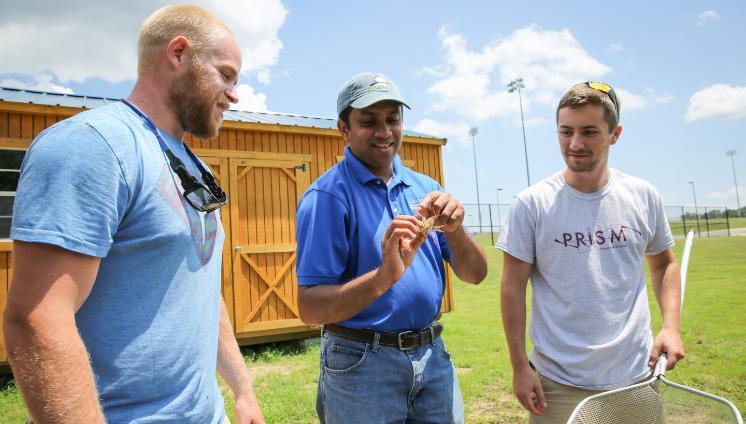It’s a multibillion dollar industry that most people are hardly aware of.
The illegal wild animal trade, in which exotic animals like giraffes, tigers, and elephants are captured and sold on the black market to the highest bidder, is much more widespread than the average person would imagine. Partly spurred by the summer’s smash Netflix documentary “Tiger King,” new light has been shed on the issue.
Now a Longwood biologist has teamed up with Sri Lankan colleagues to study the problem and recommend solutions.
Our team uncovered corruption, insufficient laws and regulations, and a lack of enforcement that contributed to the pervasiveness of the illegal elephant trade, and then made recommendations to curb the practice and help conserve the species.
Dr. Sujan Henkanaththegedara, assistant professor of biology
Dr. Sujan Henkanaththegedara, assistant professor of biology, joined a team of Sri Lankan scientists as well as colleagues at Oxford Brookes University on the paper, which charts the illegal trade of elephants. The team looked at highly valued Asian elephants on the island of Sri Lanka.
“Sri Lanka has the second-largest population of Asian elephants in the world, and our team documented 55 cases of elephants being illegally captured and traded over a ten-year period,” said Henkanaththegedara. “These are an endangered species and under significant threat from this illegal practice. Our team uncovered corruption, insufficient laws and regulations, and a lack of enforcement that contributed to the pervasiveness of the illegal elephant trade, and then made recommendations to curb the practice and help conserve the species.”

Many of the smugglers, the study found, operate with impunity in national parks and elephant sanctuaries on the island. A system of bribes and corrupt officials who profit from the illegal elephant trade keep the business flourishing, as young elephants that are captured in the wild are often registered as born in captivity.
The study is the first to look at the extent, mechanisms, and impacts of Asian elephant smuggling in Sri Lanka.
“These elephants are a precious species,” said Henkanaththegedara. “The herds have a complex social structure and very real trauma is inflicted on these wonderful creatures when a youth is captured and taken away. We must do what we can to enforce the international laws that protect them.”
The team recommended several steps to help curb the practice, including a quicker judicial process, penalties for corrupt officials, more transparency regarding those licensed to hold captive elephants, and an enactment of a national policy on captive elephants.
The team’s paper was published in the November issue of Nature Conservation.


-2-1134x530.jpg)
Leave a Comment